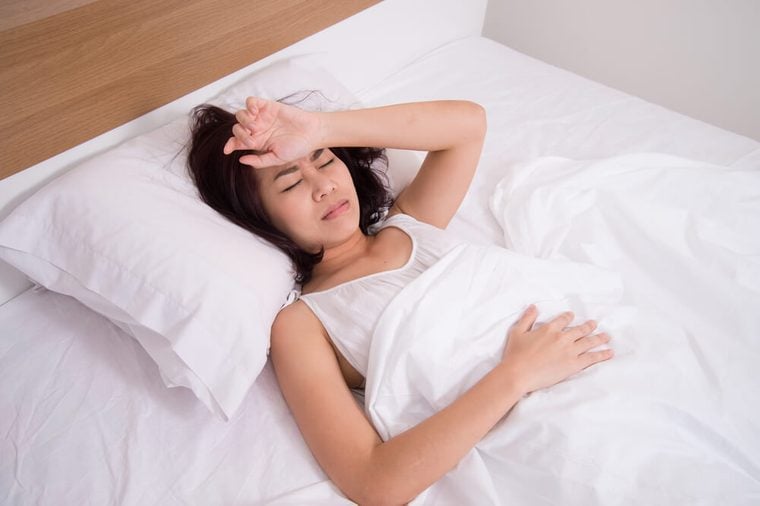
OSA: more than snoring
How much do you know about the signs of obstructive sleep apnea (OSA)? Most people know the hallmark symptom of OSA: loud snoring, often combined with gasping and choking during sleep. (Check out these other sleep disorders you should know about.)
OSA is a form of sleep-disordered breathing that, when left untreated, leads to increase risks for serious health problems, including heart attack, stroke, type 2 diabetes. But the signs—and negative health effects—of OSA go well beyond snoring.

Headaches
Headaches, especially in the morning, are a common symptom. OSA leads to diminished oxygen levels in the blood and to the brain—one reason scientists think this condition causes headaches. For women, OSA is more common than many people realize. And women’s symptoms aren’t always the same as men’s. Women may be less likely to snore very loudly, and more likely to experience mood problems and headaches. Read about these remedies for headache pain.

Daytime fatigue
OSA interrupts normal breathing. It also interrupts sleep. Difficulty breathing and episodes of apnea—when breathing temporarily stops—cause awakenings that pull you out of sound sleep, again and again over the course of a night. You might not remember these awakenings, but you’ll feel it in excessive tiredness and fatigue that you just can’t shake, and that interferes with your performance and your quality of life.

Poor attention span
Feeling distracted a lot? Diminished concentration is one of the lesser known sleep apnea symptoms. Difficulty paying attention can have consequences that go well beyond neglecting a task at work or overlooking a friend’s birthday. People with OSA are at significantly higher risk for motor vehicle accidents, according to a 2015 study published in the journal Sleep. Read about superfoods that help you focus.

Poor memory
It’s not only concentration that takes a dive because of OSA—memory also can suffer. In particular, verbal and visuospatial memory are affected by OSA. What do changes to verbal and visuospatial memory look like? You catch yourself struggling more often to come up with a word, or you can’t remember the driving route to the new lunch place you discovered. Left untreated, OSA is also linked to Alzheimer’s disease. A 2017 study shows this form of sleep-disordered breathing leads to build up of plaque in the brain that’s a marker for the disease. Here are some everyday habits you can adopt to boost your memory.

Poor motor skills
Sleep is important to motor skill learning. Research shows OSA interferes with your ability to acquire and retain motor skills. Typically, a good night’s sleep enhances new motor skills. A 2014 study showed people with OSA did not experience the improvement of motor skills that healthy sleepers did. This sign of OSA might show itself most obviously if you’re learning a new skill—playing the piano or knitting a scarf—and find it difficult or challenging. But people with OSA may also notice negative changes to their coordination. OSA also increases risks for accidents, both minor and serious. Get some relief with these 10 home remedies for sleep apnea.

High blood pressure
If your blood pressure has ticked up to unhealthy levels, it could be a sign of sleep apnea. One in five adults suffers from at least a mild form of OSA, according to the American Heart Association. The link between high blood pressure and OSA is strong, and hypertension elevates your risk for heart disease and stroke. The good news is that treating OSA can bring blood pressure down, and lower your risks for cardiovascular disease. The most common—and effective—treatment for OSA is CPAP, or continuous positive airway pressure. CPAP is a device that’s worn during sleep and provides a gentle, constant stream of air that keeps your airway unobstructed. Learn the steps you can take to avoid high blood pressure.
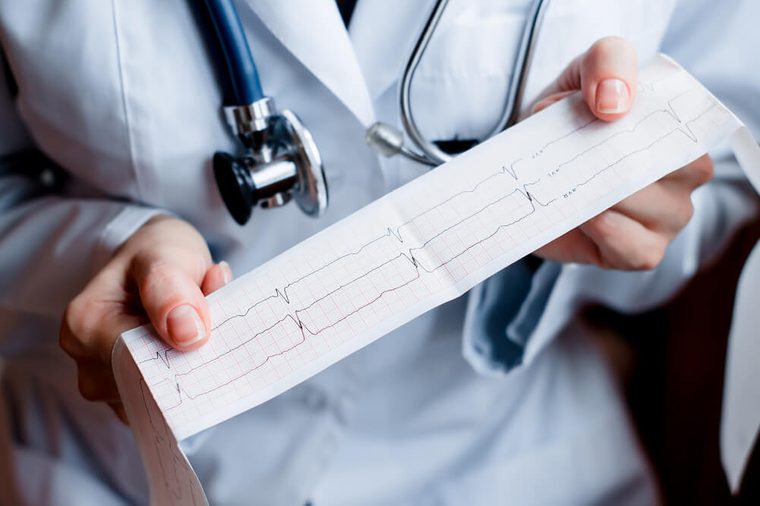
Irregular heartbeat
The presence of a rapid or irregular heartbeat is an understandably frightening experience. Noticeable changes to heartbeat should not be ignored, and are a symptom to address promptly with your doctor. Arrhythmias can be caused by several factors, including low thyroid, anxiety, and dehydration, and OSA. Recent research shows people with OSA are at higher risk for atrial fibrillation, the most common form of arrhythmia. Check out these diets that cardiologists follow to keep their heart healthy.
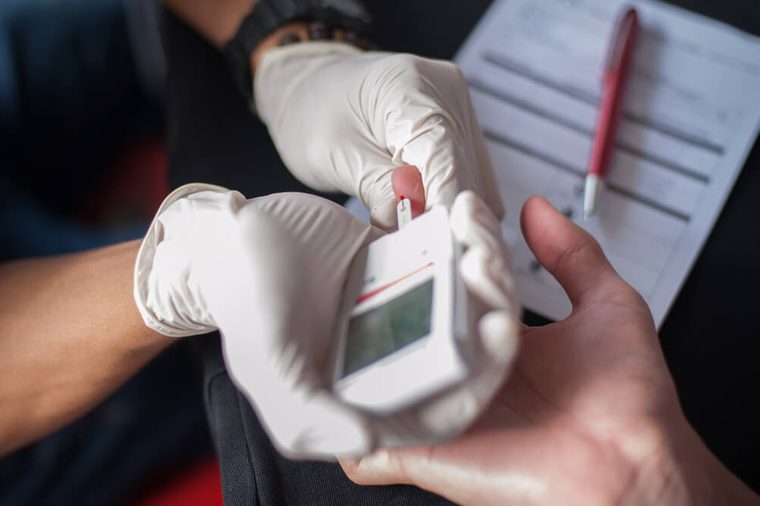
High blood sugar
Also known as hyperglycemia, high blood sugar is a sign the body isn’t effectively moving glucose from its bloodstream to its cells. A rise in blood sugar levels (measured in a blood test performed by a doctor) is one of the lesser-known symptoms of sleep apnea. Research has identified a link between elevated blood sugar and OSA in people without diabetes. High blood sugar is also a key sign of pre-diabetes and diabetes and can cause complications to the cardiovascular system, kidneys, and eyes. Treating OSA can help you avoid high blood sugar and its health risks. Here are 12 ways you can keep your blood sugar steady.

Weight gain
Being overweight puts you at greater risk of developing OSA—and untreated OSA can also cause you to pack on additional pounds. Losing weight is one of the first and best strategies for improving all forms of sleep-disordered breathing. If you notice weight gain, especially in combination with other sleep apnea symptoms, ask your doctor about testing. Check out these smart ways to kick-start weight loss.

Metabolic syndrome
What’s metabolic syndrome? It’s a condition in which a cluster of unhealthful symptoms occur together: high blood pressure, high blood sugar, high cholesterol, elevated triglycerides, and excess fat in the abdomen. Metabolic syndrome carries significantly increased risks for both cardiovascular disease and type 2 diabetes. While research shows a strong relationship between OSA and metabolic syndrome, scientists are still trying to understand what that relationship is—including which condition may cause the other. A conversation with your doctor about metabolic syndrome (and metabolic health in general) should include discussion of OSA and the quality of your sleep. Learn about the habits that might be slowing down your metabolism.
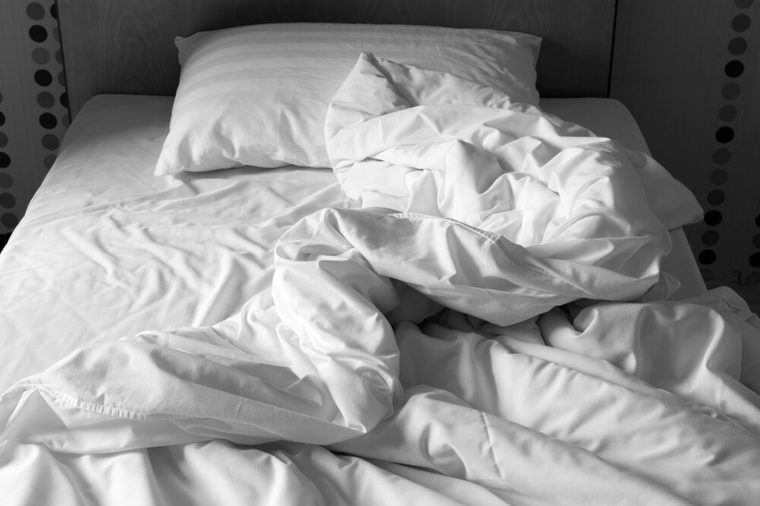
Sexual dysfunction
Many of my patients are surprised to learn that one of the signs of sleep apnea is sexual problems. It’s true for both men and women: OSA can interfere with both sexual satisfaction and desire. In men, this often includes erectile dysfunction. In women, OSA may create a loss of libido. Why? It appears to negatively affect levels of testosterone and other sex hormones. Treating OSA with CPAP or other therapies, including mouth devices worn during sleep, can improve your sex life. Check out these other surprising obstacles to a healthy sex life.

Depression
This is another sign of OSA that surprises people. The relationship between sleep and mood is complicated. Poor sleep causes mood problems, and low mood can interfere with sleep. Researchers have identified OSA as a contributor to depression. One recent study showed more than 46 percent of people with OSA had depressive symptoms. Depression may be a more common OSA symptom in women than in men. Know the silent signs of depression that mean it’s time to seek help.

Anxiety
The breathing interruptions and awakenings of OSA can make it all but impossible to get a good night’s sleep. Poor sleep quality and not getting enough sleep both significantly raise your risk for anxiety. (And anxiety can make it much more difficult to sleep well.) Research indicates that more than 50 percent of people with OSA also have anxiety. Learn to spot the signs of high-functioning anxiety.
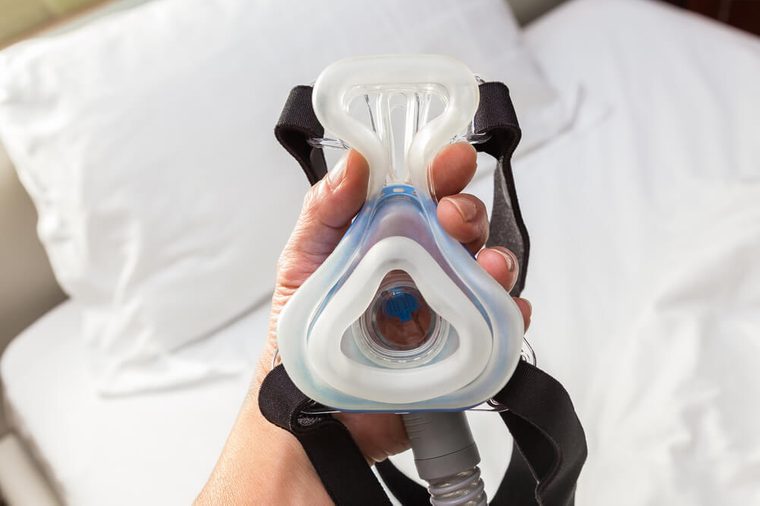
Treat your snoring
Not everyone who snores has OSA. Roughly half of routine snorers suffer from the more serious form of sleep-disordered breathing. Don’t wait for a snoring issue to create additional health problems to treat it. Lifestyle changes—losing weight, limiting alcohol consumption—can help. So can internal and external nasal dilators—Theravent and Mute are two good ones. Mouth guards can also reduce snoring and normalize breathing during sleep—I recommend Zyppah. If you snore regularly or loudly, bring this issue to your doctor and rule out OSA before you use these snoring treatments. Here are some simple home remedies for snoring.